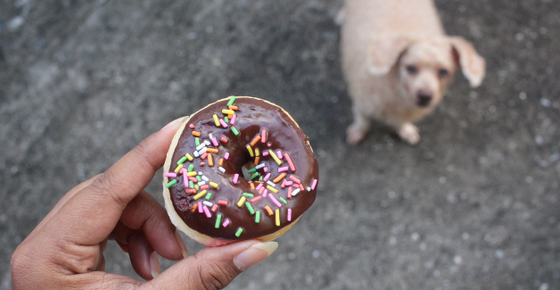
We have all heard people say things such as "Don't give your dog chocolate, it will kill him!" or "Even a small amount of chocolate will kill a dog." Fortunately for all cabinet opening dogs out there, the truth to the chocolate rumors lies somewhere between the chilling truth in the refrigerator and the trash. Let's explore the truth behind chocolate and dogs, and what to do if you find your dog has a sweet tooth.
Chocolate is usually associated with being bad for just dogs, but it can be bad for any pet.
It's important to know that it is not the actual chocolate that will harm your pet, but an ingredient known as "Theobromine" which is toxic to pets. The amount of Theobromine varies from chocolate to chocolate. This ingredient increases urination and affects the central nervous system in pets.
What to do if your pet gets into your secret stash:
It might not be necessary to run out to the emergency veterinary clinic on Christmas or Thanksgiving if your pet decides on a new snack. As soon as you realize your pet got into the goodies, asses the situation. If your pet
snatched a stray M&M that the children dropped on their way through the house, you can relax and move on. If the entire box of chocolate candy bars is gone, start gathering information to give to the vet or veterinary technician you speak with.
Look at the packaging and see how much chocolate your pet ate. Packaging must include the contents weight. Hopefully you will know if the package was already open and about how much was left inside.
Examine the type of chocolate. Unsweetened bakers chocolate is considered Theobromine dense. Milk chocolate has the least amount of Theobromine, while semi-sweet chocolate falls in the middle of the chocolate road.
Consider your pet's weight. A large Great Dane will not be as affected by the Theobromine as a small Maltese dog.
Assess how your pet is reacting. Did you notice the chocolate had been eaten because they acted funny? Are they vomiting, do they have diarrhea? Increased urination is another side effect. Go ahead and give us a call if your pet experiences any of these symptoms.
Understand that just like humans, dogs who have tasted chocolate can actually crave more of it. Never give in to your pet that keeps eyeballing that chocolate chip cookie from under the table. Letting your pet have a taste of chocolate will leave them looking for more and more.